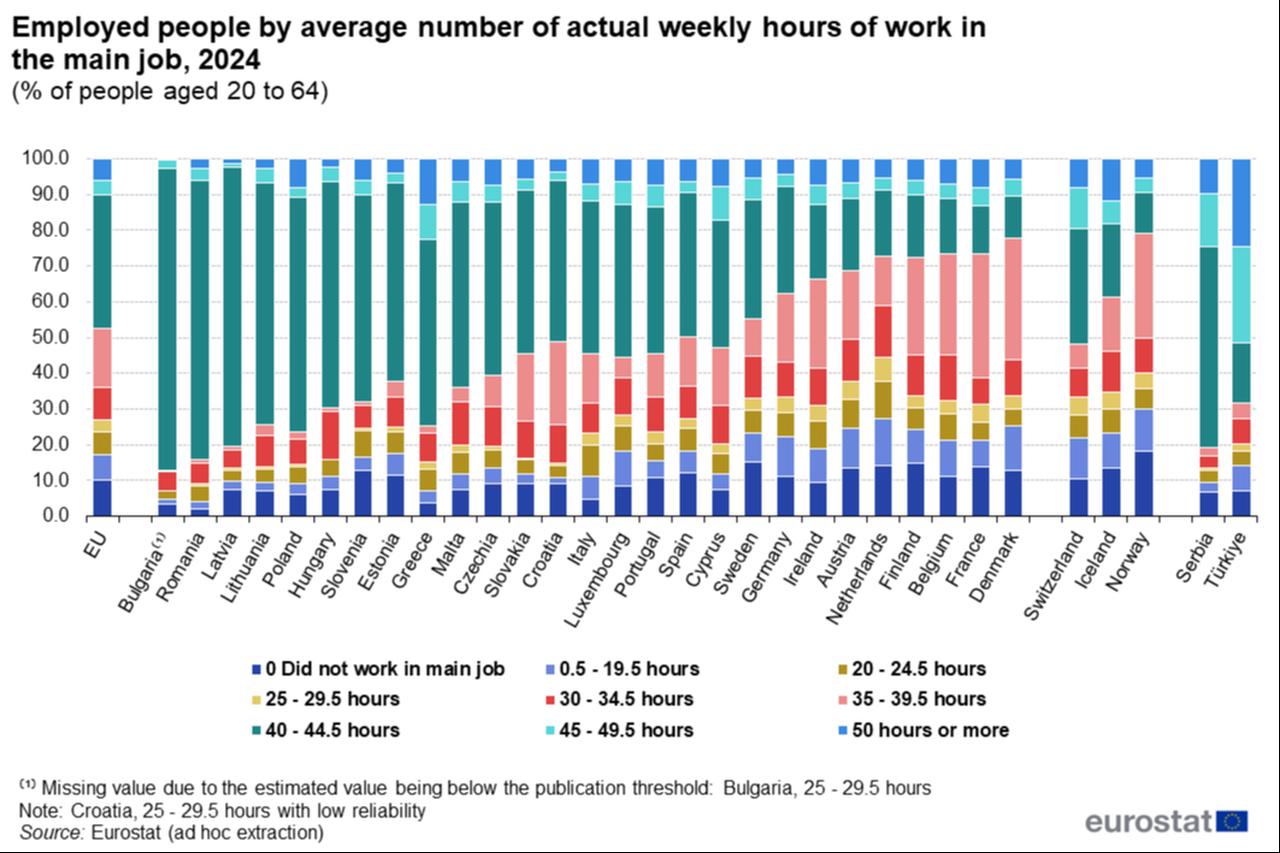
Efforts have begun in the Netherlands to reduce working hours in the workplace. The country, which has the highest part-time employment rate among OECD nations, is preparing to implement a four-day workweek model. According to Eurostat, the average weekly working hours for Dutch workers aged 20–64 is just 32.1 hours, the lowest among EU countries.
Several Dutch companies are experimenting with shorter workweeks, aiming to maintain efficiency while giving employees more time for personal development and family life. Experts suggest that if widely adopted, the four-day workweek could lead to higher job satisfaction, lower absenteeism, and a more engaged workforce.
Traditionally, men in the Netherlands have worked full-time, while women have predominantly worked part-time. Since the 1980s, female labor force participation has increased, giving rise to what is called the “one-and-a-half income model,” which has been supported by tax and social welfare policies.

The concept of a four-day workweek is rapidly gaining traction around the world as companies and governments explore ways to improve employee well-being, reduce burnout, and maintain productivity. Below are some notable examples of countries and initiatives where shorter workweeks have been piloted or implemented, along with detailed outcomes and insights:
Iceland
Implementation: Between 2015 and 2019, Iceland conducted large-scale trials involving 2,500 public sector employees, reducing their weekly working hours from 40 to 35–36 hours without a reduction in pay. The program covered a variety of job types, including administrative, educational, and health care positions.
Results: The trials were widely considered a success. Employees reported significantly lower stress levels, improved mental health, and higher overall job satisfaction. Productivity remained stable or even improved in many sectors. After the conclusion of the pilot, 86% of workers either moved permanently to shorter work hours or were offered the option to do so, demonstrating broad acceptance and feasibility of reduced workweeks.
United Kingdom
Implementation: In 2022, the U.K. launched a pilot program involving 61 companies and approximately 2,900 employees across different industries, testing a 32-hour workweek while maintaining full pay. The initiative was part of a larger effort to explore innovative work models in response to employee burnout and labor shortages.
Results: Feedback from employees was overwhelmingly positive. Employee satisfaction increased by 97%, stress levels fell by 25%, and staff retention improved significantly. Companies reported that employees were more focused during working hours, and productivity metrics were maintained or enhanced. The trial also revealed that flexible scheduling could lead to better team collaboration and creativity.
Spain (Valencia)
Implementation: In 2023, Valencia initiated a pilot program for 360,000 workers, encouraging companies to reduce workdays and concentrate holidays over four consecutive Mondays. The initiative aimed to improve work-life balance, promote mental well-being, and encourage more family time.
Results: The program yielded notable social and environmental benefits. Participants reported lower stress levels, improved personal well-being, and enhanced satisfaction with work-life balance. Additionally, reduced commuting contributed to improved air quality in urban areas, while families and children benefited from increased quality time at home.

In Türkiye, the four-day workweek has not been officially implemented and no national legislation currently supports it. However, some private-sector companies have experimented with flexible work hours and remote work arrangements to improve employee satisfaction and work-life balance.
According to Eurostat, employees aged 20–64 in Türkiye work an average of 43.1 hours per week, above the EU average. A significant proportion of workers exceed 45 hours weekly, with men typically working longer full-time hours than the EU norm.
Despite these pilots, widespread implementation in Türkiye faces challenges, including:
Nevertheless, growing interest in employee well-being and the success of global pilots could inspire gradual adoption of four-day workweeks in Türkiye, particularly in the private sector and multinational corporations.